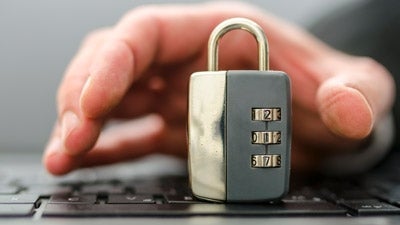Home > Technology > Security >
Your Small Business is in Danger: How to Kick an Identity Stalker to the Curb
By: Morgan Sims

Small companies have the highest risk of identity theft out of any other kind of businesses. There are many areas of vulnerability because of the way most small businesses operate. If you don’t want your business and your identity to become part of the 75% of all identity theft crime, here are some security measures you can take.
Low-Tech Solutions
If you keep sensitive information, such as social security numbers, tax ID numbers, bank accounts, credit card data, and driver’s license numbers, in a hard copy format, consider moving those files off-site. Paper files with private information are easy to duplicate or outright steal, so identity thieves target this kind of content first. Store hard copies of private info in a secure place away from the workplace. This will make it harder for thieves, whether from inside the company or outside, to gain access.
Screening is Essential
A startling amount of identity theft in small businesses comes from internal staff. This is why it’s very important to screen all potential employees and contractors before giving them access to private information. Spending a little extra money on background checks and a bit more time on in-depth interviews can save you vast amounts of lost time and money, on identity recovery down the line. It is also extremely important to speak to references, and even previous employers that aren’t listed as references to gauge a candidate’s trustworthiness in their previous positions.
Eyes on the Books
Running a small business is hectic, but it’s important to take the time to monitor your account information regularly. Everything from payroll to the credit and debit database needs to be analyzed at least once-a-month to check for irregularities or unauthorized access of information. If you don’t have time to do this yourself, delegate the duty to an employee you trust. Many small businesses have employees with multiple titles and responsibilities, but to ensure the company’s financial safety consider hiring or designating a current employee whose sole task is managing finances and accounts.
System Security
There’s no excuse for keeping privileged data on an unsecured computer. All company machines, especially those that handle private information, should be fully equipped with firewall and antivirus software that updates often, and has a full suite of features to scan websites, email, and all other forms of incoming data. You can also take advantage of additional protections through your Internet service provider. For example, AOL Lifelock provide data recovery benefits should you suspect a breach to your company’s security.
Emergency Planning
No matter how many security measures you implement to protect the data your company handles, there is no way to be 100% risk-free. You should outline a thorough plan you can put into action in the event of confirmed or suspected data theft. This should include steps to slow or halt data transfer, how to contact potential victims and what to say to them, how to go about data recovery, and if necessary, how to involve authorities. This may seem like over-planning, but it is no less essential to the security of your company than a fire escape procedure is essential to the safety of your workers.
The difference between a data-secure company and an at-risk company is preparedness. With a mix of technological assistance and old-fashioned vigilance, you can keep your business out of the identity theft statistics and guarantee security for your customers.
What steps do you take to protect your small business?
Published: August 23, 2013
3873 Views
3873 Views












